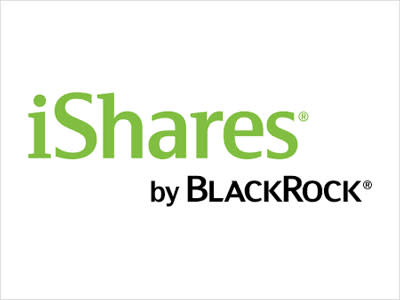BlackRock has been managing index portfolios since 1971
This ETF provides exposure to the largest 100 companies in the UK
The ETF’s low charges should help it track the FTSE 100 Index closely
How it fits in a portfolio
An ETF is a basket of investments that often includes shares or bonds. They tend to track the performance of an index such as the FTSE 100 and trade on stock exchanges, like shares. This means their price fluctuates throughout the day.
The iShares Core FTSE 100 ETF invests in the 100 largest companies in the UK. While the FTSE 100 is a UK index, many of the companies also earn money overseas. Investors will therefore be indirectly investing into foreign economies as well as the UK.
An ETF is one of the simplest ways to invest and can be a low-cost starting point for an investment portfolio aiming to deliver long-term growth. ETFs that focus on the UK’s largest companies could be used to diversify a global portfolio, or one focused on smaller companies or other investments such as bonds.
Manager
Dharma Laloobhai is the Head of Core Exposures within BlackRock’s EMEA Index Equity Portfolio Management Group. She’s responsible for fund managers based in London and Munich who manage developed and emerging market iShares equity index funds and ETFs.
While Laloobhai leads the team, each ETF at BlackRock has a primary and secondary manager, though in practice a broader team helps to manage each ETF. Within the team, portfolio managers rotate their responsibilities, which gives them experience across different regions like the UK, the US and Europe.
Process
This ETF aims to track the performance of the UK’s largest 100 companies, as measured by the FTSE 100 Index. It does this by investing in every company, and in proportion with each company’s weight in the index. This is known as full replication and should help the ETF track the index closely.
Financial companies make up the largest part of the ETFs assets, accounting for 19.25% at the end of April 2024. Consumer staples and industrial businesses followed at 15.90% and 13.57% respectively. The UK is home to two of the largest global energy companies, Shell and BP, and these two companies alone made up 13.22% of the ETF at the end of April.
In any ETF, taxes, dealing commissions and the cost of running the ETF all drag on performance. BlackRock use a system to help them determine the most efficient way to trade. They also cross trade internally across all their index funds and ETFs when there is an index rebalance. This helps to reduce costs.
The ETF can lend some of its investments to others in exchange for a fee in a process known as stock lending. This offsets some of the costs involved with running the ETF. Since BlackRock’s lending program started in 1981, only three borrowers with active loans have defaulted. In each case, BlackRock was able to repurchase every security out on loan with collateral on hand and without any losses to their clients. Even so, stock lending is a higher risk approach.
As this ETF is listed offshore investors are not usually entitled to compensation from the UK Financial Services Compensation Scheme.
Culture
BlackRock is currently the largest asset manager in the world, running around $10.5trn of assets globally as of May 2024. The company was founded by eight partners including current CEO Larry Fink and is known for both active and passive strategies. Employees at BlackRock are encouraged to hold shares in the company so that they are engaged with helping the company perform well and grow. The iShares brand represents BlackRock's family of index tracking and exchange-traded funds.
As the world's largest asset manager, and with lots of resource and knowledge under its belt, BlackRock benefits from unique access to the marketplace, which can help reduce trading costs. BlackRock is also a pioneer in the passive investment space and has a track record of innovation in this part of the investment market.
The team running this ETF also works closely with various equity and risk departments across the business. We believe this adds good support and challenge on how to run the ETF effectively.
ESG Integration
BlackRock was an early signatory to the Principles for Responsible Investment (PRI) and has offered Environmental, Social and Governance (ESG)-focused funds for several years, including through its iShares range of passive products. However, it only made a company-wide commitment to ESG in January 2020. Following that announcement, the company promised to expand its range of ESG-focused ETFs, screen some thermal coal companies out from its actively managed funds and require all fund managers to consider ESG risks.
BlackRock’s Investment Stewardship Team aims to vote at 100% of meetings where it has the authority to do so. The Investment Stewardship team engages with companies, in conjunction with fund managers, and the results of proxy votes can be found on the BlackRock website’s ‘proxy voting search’ function. The firm also outlines its work on voting and engagement in annual and quarterly Stewardship reports.
The firm has courted controversy in recent years for failing to put its significant weight behind shareholder resolutions aimed at tackling climate change. It responded by committing to be more transparent on its voting activity and providing rationales for key votes. In 2024, Blackrock announced that its US arm would step back from the Climate Action 100+ collective engagement initiative, citing legal considerations, although it suggested its international arm would remain a member.
The iShares Core FTSE 100 ETF tracks an index that does not specifically integrate ESG considerations into its process. The ETF can therefore invest in shares issued by companies in any sector.
Cost
The ETF currently has an ongoing annual fund charge of 0.07%. Ensuring an ETF has a low charge is an important part of tracking the underlying index closely. The annual charge to hold ETFs in the HL ISA or SIPP is 0.45% (capped at £45 p.a. in the ISA and £200 in the SIPP). There are no charges from HL to hold ETFs within the HL Fund and Share Account or HL Junior ISA.
As ETFs trade like shares, both a buy and sell instruction will be subject to the HL share dealing charges.
Performance
The ETF has tracked its benchmark closely over the long term. In the last 10 years, the ETF has returned 74.51%* versus the benchmark’s return of 76.28%. As expected of tracker funds, it’s fallen behind the index over the long term because of the costs involved. However, the management tools used by the team have helped to keep the tracking difference between the ETF and index to a minimum. Remember, past performance isn’t a guide to future returns.
Over the past 12 months, the ETF has tracked the FTSE 100 Index tightly, rising 7.50% compared to 7.66% for the index. Inflation has been at high levels in the UK but has been on a downward trend throughout the year and has recently fallen to its lowest rate in three years. The FTSE 100 reached record highs in April 2024 due to falling inflation and improved sentiment in the UK.
Industrials performed well over the year. Rolls Royce, a multinational aerospace and defence company, has been the lead driver of gains in the UK during this time, rising over 200%. As a maker of airline engines, Rolls Royce has been able to benefit from the return to travel since the Covid pandemic. Financial companies in the UK, like Barclays and HSBC, have also performed well as banks have profited from the increased cost of borrowing due to higher interest rates.
Consumer staples on the other hand delivered negative returns over the year and were the main detractor from the ETF’s performance. This is in line with the performance of the underlying index which the ETF aims to match.
Given BlackRock's size, experience and expertise running ETFs, we believe this ETF should continue to track the index well in future, though there are no guarantees.
Annual percentage growth
Apr 19 – Apr 20 | Apr 20 – Apr 21 | Apr 21 – Apr 22 | Apr 22 – Apr 23 | Apr 23 – Apr 24 | |
|---|---|---|---|---|---|
iShares Core FTSE 100 ETF | -17.21% | 22.00% | 12.24% | 8.03% | 7.50% |
FTSE 100 | -17.14% | 22.15% | 12.35% | 8.17% | 7.66% |


